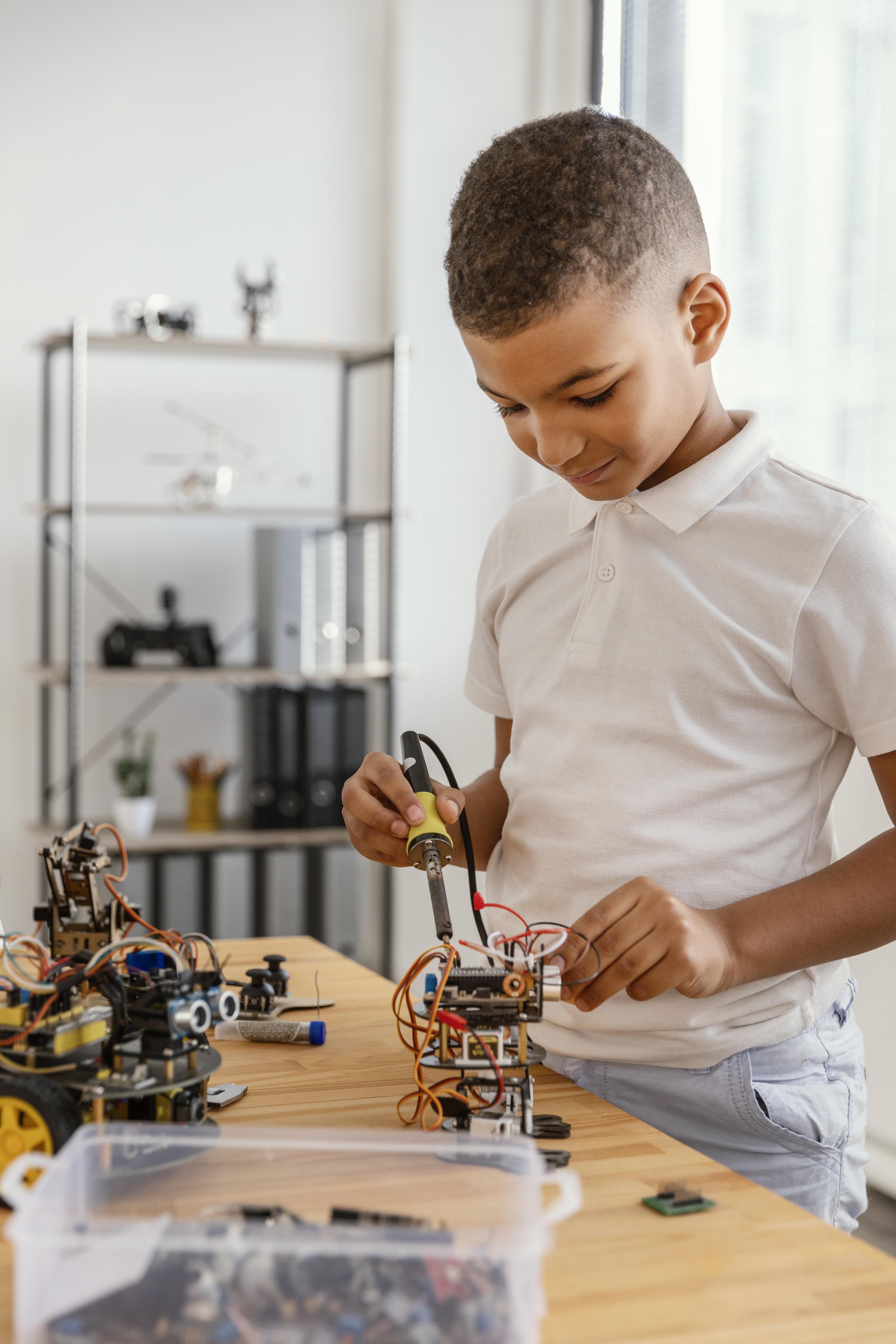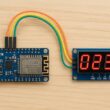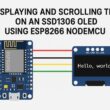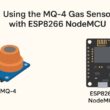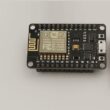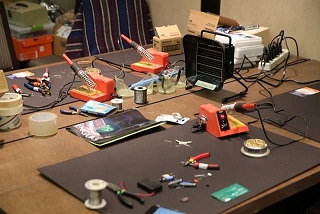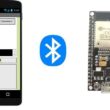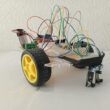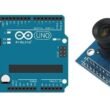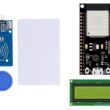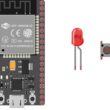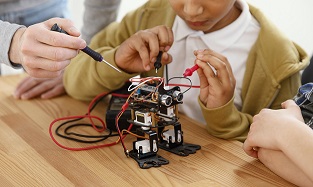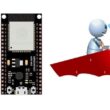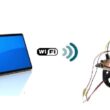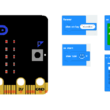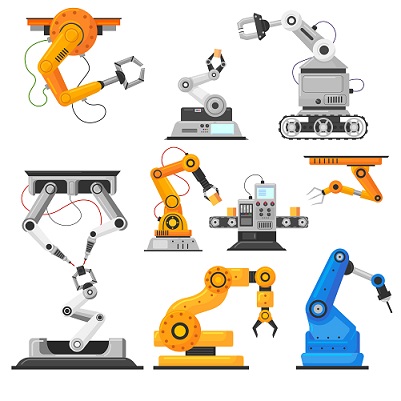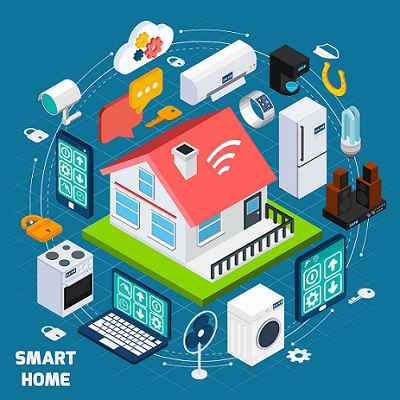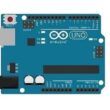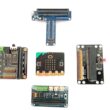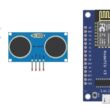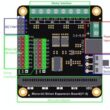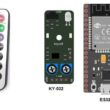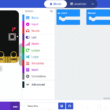Use of HC-SR04 ultrasonic sensor and I2C LCD screen by ESP32
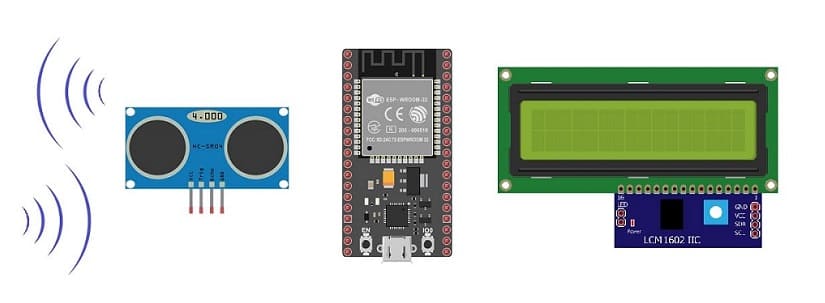
Tutorial plan
1- Goal of the project
2- The components required to use HC-SR04 ultrasonic sensor and I2C LCD screen by ESP32 board
3- Mounting the ESP32 board with the HC-SR04 ultrasonic sensor and I2C LCD screen
4- Program the ESP32 board with Micropython to calculate and display the distance between the HC-SR04 sensor and an object
Goal of the project
The purpose of this project is to measure the distance between the HC-SR04 ultrasonic sensor and a detected object and display it on the I2C LCD screen.
Here are some common goals for this project:
Navigation and Obstacle Avoidance:
This project is commonly used in navigation systems for vehicles, drones, and robots to measure distances and avoid obstacles. It helps in providing a safe path by detecting and navigating around obstacles.
Industrial Automation:
In industrial settings, this project can be used for automating processes by precisely measuring distances between objects or components on a production line. This ensures accurate positioning and alignment.
Proximity Detection:
This project is employed for detecting the proximity of objects or individuals. This is useful in security systems, access control, and automation where actions need to be triggered based on the presence or absence of objects within a certain range.
Parking Assistance:
This project is utilized in parking assistance systems in vehicles. It helps drivers by measuring the distance between the vehicle and obstacles, providing visual or audible alerts to avoid collisions during parking maneuvers.
Surveillance and Security:
This project is used in security systems to monitor areas and detect any unauthorized intrusion. By measuring distances, security systems can trigger alarms when someone enters a restricted zone.
Medical Applications:
In medical devices, this project can be used for various purposes, such as measuring the distance between ultrasound transducers and the body surface, monitoring fluid levels in medical bags, or assisting visually impaired individuals in navigation.
Level Monitoring:
This project is employed in level monitoring systems to measure the distance between a sensor and the surface of a liquid or solid material. This is commonly used in tanks for monitoring fluid levels.
Traffic Control:
This project can contribute to traffic management by measuring distances between vehicles on the road. This information can be used to implement intelligent traffic control systems.
IoT Applications:
In the Internet of Things (IoT) context, this project can be integrated into various devices and applications for smart homes, smart cities, and industrial IoT to enable distance-based automation and monitoring.
Education and Research:
This project serves as a valuable tool in educational projects and scientific research. It allows students and researchers to experiment with and understand principles related to distance measurement, sensors, and electronics.
In summary, the purpose of our project is to provide accurate and reliable distance information for a wide range of applications, including navigation, automation, security, healthcare, and more. The specific goals and benefits depend on the requirements of the particular use case or industry.
The components required to use HC-SR04 ultrasonic sensor and I2C LCD screen by ESP32 board
ESP32 board:
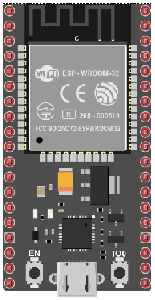
The ESP32 is a powerful microcontroller developed by Espressif Systems. It's renowned for its integrated Wi-Fi and Bluetooth capabilities, making it a popular choice for various IoT (Internet of Things) applications.
HC-SR04 ultrasonic Sensor
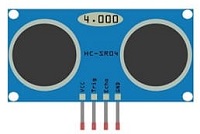
The HC-SR04 is an ultrasonic distance measuring sensor module.
I2C LCD Display (usually 16x2)
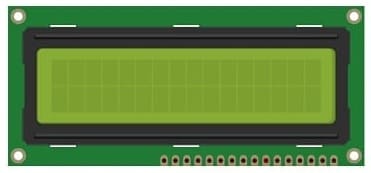
This display is used for displaying distance between the HC-SR04 sensor and an object.
Jumper Wires:
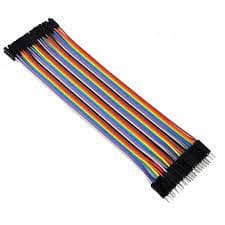
For making temporary connections and wiring between components.
Breadboard:
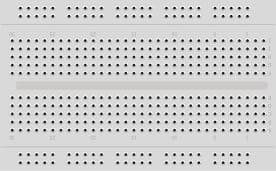
A breadboard is a useful tool for creating temporary electronic circuits. It allows you to connect components without soldering.
Mounting the ESP32 board with the HC-SR04 ultrasonic sensor and I2C LCD screen
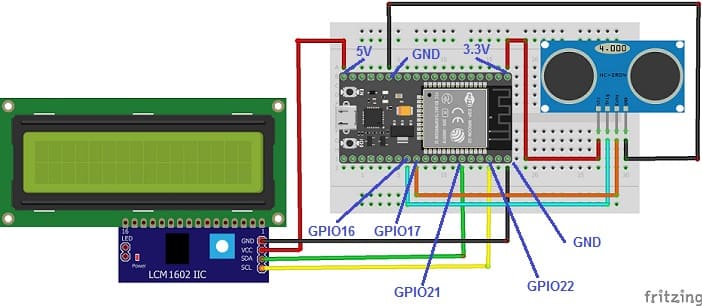
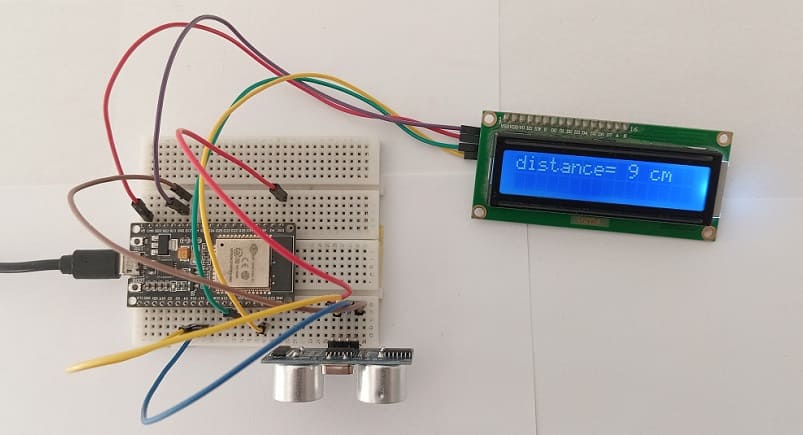
Attaching the I2C LCD Display :
- connect the VCC pin of the display to 5V pin of the ESP32
- connect the GND pin of the display to GND pin of the ESP32
- connect the SDA pin of the display to GPIO21 pin of the ESP32
- connect the SCL pin of the display to GPIO22 pin of the ESP32
Attaching the HC-SR04 sensor :
- Connect the VCC(+) pin of the HC-SR04 ultrasonic sensor to the 3.3V pin on the ESP32 board.
- Connect the Trig pin of the HC-SR04 ultrasonic sensor to GPIO16 pin on the ESP32 board.
- Connect the Echo pin of the HC-SR04 ultrasonic sensor to GPIO17 pin on the ESP32 board.
- Connect the GND(-) pin of the HC-SR04 ultrasonic sensor to any ground (GND) pin on the ESP32 board.
Program the ESP32 board with Micropython to calculate and display the distance between the HC-SR04 sensor and an object
To program the ESP32 board with MicroPython to calculate and display the distance between the HC-SR04 sensor and an object on an I2C LCD screen, you can follow the steps below.
1- Flash your ESP32 with MicroPython using this file esp32-20210902-v1.17.bin.
2- import this library : hc-sr04 for HC-SR04 sensor
3- import this two libraries : i2c_lcd and lcd_api for I2C LCD screen
4- Create a new Python script and write the following code:
|
1 2 3 4 5 6 7 8 9 10 11 12 13 14 15 16 17 18 19 20 21 22 23 24 25 26 |
import machine from machine import Pin, SoftI2C from lcd_api import LcdApi from i2c_lcd import I2cLcd from hcsr04 import HCSR04 import time I2C_ADDR = 0x27 totalRows = 2 totalColumns = 16 # Configure I2C for LCD screen i2c = SoftI2C(scl=Pin(22), sda=Pin(21), freq=10000) lcd = I2cLcd(i2c, I2C_ADDR, totalRows, totalColumns) # Configure HC-SR04 pins sensor = HCSR04(trigger_pin=16,echo_pin=17,echo_timeout_us=1000000) while True: #calculate distance between the HC-SR04 sensor and an object distance = sensor.distance_cm() print('distance= ',distance,' cm') # show distance on LCD I2C display lcd.putstr("distance= ") lcd.putstr(str(int(distance))) lcd.putstr(" cm") time.sleep_ms(2000) lcd.clear() |
This code continuously measures the distance using the HC-SR04 sensor and displays it on the I2C LCD screen.
